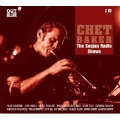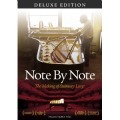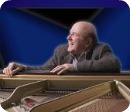Doug Ramsey's Blog, page 10
November 12, 2010
Other Places: Learning Through Hearing
Jazz as an academic discipline has made huge strides in colleges and universities, even in high schools and middle schools. Students can major in jazz studies in music departments where 40 years ago they would have been suspended for jamming in practice rooms. The University of North Texas, Indiana University, the University of Illinois, Berklee College of Music and the New England Conservatory are among dozens of institutions of higher education turning out hundreds of graduates educated in jazz. In a feedback system not lacking in irony, jazz degrees do not pave the way to making a living in clubs, concerts, festivals and recording studios. Rather, in today's market, many jazz graduates end up teaching in programs that turn out still more musicians unable to sustain themselves performing the music they love.
Problems of economics and our jazz-deaf culture aside, how effective is formal jazz education in transmitting the kind of knowledge and experiencecall it wisdomthat musicians in earlier eras accumulated on the road with big bands, playing extended engagements in clubs, sitting in after-hours jam sessions? Do they get the kind of seasoning young Paul Desmond (pictured below) described in a letter to his wife in 1950? He was on the road in New York with Jack Fina's band. Pianist Sanford Gold invited Desmond to a Sunday night session at Eddie Condon's club.
I got out to Condon's after the job, about 10 minutes before they finished. As I came in the club and unpacked the horn, they played, in rapid succession, my threefavorite tunes, things I hadn't even thought of for a year. The rhythm section was swinging, Sanford was playing impeccably, and the horns were miscellaneous and unimpressive, instead of the trumpet-trombone-clarinet thing that I was a bit worried might be there. I had stayed up the night before, was feeling more like playing than I had for years, and the situation seemed expressly designed to restore some of my shattered confidence. One chorus of a ballad, I thought happily as I climbed up on the stand, and at least somebody around here will be interested. If I can just get something across to one person, all is not yet lost. Seething pleasantly with lyrical ideas, I sat down just as they started the last tune of the night. "Cherokee," at a circus tempo. I played miserably. After that, they went home, and Sanford Gold went to the hospital for three weeks for an operation.
Before he left, Peanuts Hucko said "Sounds nice, man." He smiled at me the way I used to smile at Herbie Caro*...*A San Francisco tenor saxophonist not highly regarded by Desmond, who died in the 1940s.
A widespread criticism of modern jazz education is that it concentrates too little on the formative risks of jumping in and possibly failing, as Desmond claimed he did at Condon's, and too much on putting fashionably hip post-Coltrane chords with the [image error] appropriate scales, too much on reading arrangements. Delfeayo Marsalis is a part-time educator who has another method. He is in northern California this week using a special kind of ear training to inculcate in high school musicians a feeling for jazz that cannot flow from manuscript paper. Paul Conley of Sacramento's Capitol Public Radio visited one of Marsalis's classes. To hear his story, go here and click on "Listen Now".
Compatible Quotes: Learning
Nothing that is worth knowing can be taught.Oscar Wilde
Jazz is like writing. It can be learned but not taught.Paul Desmond
November 11, 2010
Great Solos: Jack Jenney, "Stardust"
An occasional series
Jenney is famous for eight-bars of trombone improvisation on Artie Shaw's 1940 recording of "Stardust." Several months earlier with his own band, he played a full-length solo on this little-known version of Hoagy Carmichael's classic song.
November 9, 2010
CD: Chet Baker
 Chet Baker, The Sesjun Radio Shows (T2). The trumpeter and singer soars in two CDs compiled from 1970s and '80s concerts on the Dutch radio program Tros Sesjun. Baker's fleetness, lyricism, hard swing and vocal improvisations put this among the best work of his later years. Of the sidemen, pianists Harold Danko and Phil Markowitz, bassist Cameron Brown and drummer John Engels make outstanding contributions. Sound quality is superb. There are five stunning 1985 tracks by Baker with guitarist Philip Catherine and bassist Jean Louis Rassinfosse. Even the most hardened Baker detractors will find it difficult to dismiss these glowing performances.
Chet Baker, The Sesjun Radio Shows (T2). The trumpeter and singer soars in two CDs compiled from 1970s and '80s concerts on the Dutch radio program Tros Sesjun. Baker's fleetness, lyricism, hard swing and vocal improvisations put this among the best work of his later years. Of the sidemen, pianists Harold Danko and Phil Markowitz, bassist Cameron Brown and drummer John Engels make outstanding contributions. Sound quality is superb. There are five stunning 1985 tracks by Baker with guitarist Philip Catherine and bassist Jean Louis Rassinfosse. Even the most hardened Baker detractors will find it difficult to dismiss these glowing performances.
CD: Mike Barone
[image error]Mike Barone, Live 2005! Redux (Rhubarb). Barone is one of the most accomplished big band arrangers never to become famous. For this reissue, he remixed to improve the sound, pruned overlong solos and added a track. Why "Grand Central" hit the editing room floor the first time around is a mystery. Ernie Watts and Vince Trombetta share the tenor sax glory in Barone's pungent treatment of the John Coltrane classic. Alto saxophonist Kim Richmond, trumpeter Steve Huffsteter and Barone the trombonist also shine in the CD, but Barone the arranger cuts everyone. A few seconds into "When You're Smiling," you'll be smiling.
DVD: Steinway
 Ben Niles, Note By Note: The Making Of Steinway L1037 (docuramafilms). This gem of the documentarian's art follows a 9-foot concert grand for a year, from its beginning as lumber to its arrival at the Steinway showroom in New York. Director Ben Niles and his crew equal the love, knowledge and skill that went into making the instrument. They incorporate conversation and playing by Hank Jones, Kenny Barron, Marcus Roberts, Harry Connick, Jr. and Bill Charlap. Classical pianists Hélène Grimaud, Lang Lang and Pierre-Laurent Aimard also appear. The film transmits to the viewer the emotion and pride of the Steinway craftsmen. Charlap narrates with understated authority.
Ben Niles, Note By Note: The Making Of Steinway L1037 (docuramafilms). This gem of the documentarian's art follows a 9-foot concert grand for a year, from its beginning as lumber to its arrival at the Steinway showroom in New York. Director Ben Niles and his crew equal the love, knowledge and skill that went into making the instrument. They incorporate conversation and playing by Hank Jones, Kenny Barron, Marcus Roberts, Harry Connick, Jr. and Bill Charlap. Classical pianists Hélène Grimaud, Lang Lang and Pierre-Laurent Aimard also appear. The film transmits to the viewer the emotion and pride of the Steinway craftsmen. Charlap narrates with understated authority.
Book: Maynard Ferguson
 Ralph Jungheim, Maynard! (Buster Ann). Jungheim's book is a collection of 30 transcribed reminiscences about the trumpeter and bandleader. Most of them are by musicians, but Ferguson's valet, bus driver and instrument maker also contribute. Some of the anecdotes are amusing, some interesting, some appalling. The exclamation point after his name in the title applies to Ferguson's spectacular playing and his ego. Even associates who had problems with his music and his insecurities had affection for him. The mystery of Ferguson's supernatural chops is probably not explainable, but the book gives insights into his musicality and the contradictions in his character.
Ralph Jungheim, Maynard! (Buster Ann). Jungheim's book is a collection of 30 transcribed reminiscences about the trumpeter and bandleader. Most of them are by musicians, but Ferguson's valet, bus driver and instrument maker also contribute. Some of the anecdotes are amusing, some interesting, some appalling. The exclamation point after his name in the title applies to Ferguson's spectacular playing and his ego. Even associates who had problems with his music and his insecurities had affection for him. The mystery of Ferguson's supernatural chops is probably not explainable, but the book gives insights into his musicality and the contradictions in his character.
New Picks For Listeners, Viewers & Readers
 Recommendations in the center column, under Doug's Picks:
Recommendations in the center column, under Doug's Picks:
CDs by a trumpeter, a bassist and an arranger
A DVD documenting the birth of a piano
A book of stories about a brass phenomenon
Reilly's Joyful Thanks
Pianist Jack Reilly will be at the Johns Hopkins Medicine Center in Baltimore today to pay musical tribute to the memory of the doctor who saved his life.
 For details, go here.
For details, go here.
Doug Ramsey's Blog
- Doug Ramsey's profile
- 2 followers



